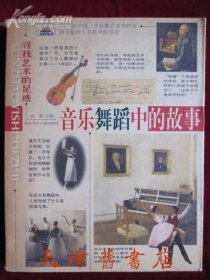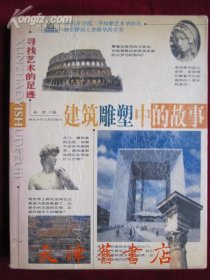
André Citroën: The Henry Ford of France
¥ 168 ¥ 120 九五品
仅1件
作者John Reynolds; Chris Goffey (foreword)
出版社St. Martin\'s Press
ISBN9780312165055
出版时间1996
版次first published
印刷时间1996
装帧精装
页数256页
定价120元
货号c690
上书时间2011-11-08
- 在售商品 暂无
- 平均发货时间 4小时
- 好评率 暂无
- 最新上架
商品详情
- 品相描述:九五品
- 商品描述
- 本书原售价120.00美元,净重800克,馆藏自然旧。[图书分类:法国经济人物传记]The French automobile pioneer and entrepreneur Andre Citroen is one of the neglected founding figures of the industry. Although his name remains a familiar household word, his colourful personality and spectacular achievements are now largely unrecognized. This illustrated biography reviews Citroen\'s life and work and catalogues the cars he produced. It restores his reputation as one of the most progressive and imaginative characters in the history of the motor car. The book recalls his privileged childhood as the son of a prosperous Jewish immigrant in Paris during the late-19th century. It records the start of his meteoric career, which began with the manufacture of helical gears and continued with the production of munitions during World War I. It goes on to chronicle his prodigious accomplishments as a motor-magnate in the 1920s when he was responsible for the first mass-produced and mass-marketed vehicles in Europe, a feat of industrial creativity that earned him his reputation as the Henry Ford of France. His story comes to a sad end in the Great Depression of the mid-1930s when, just after the launch of his most famous model, the revolutionary Traction Avant, his company went bankrupt and he died.This illustrated biography reviews Citroen\'s life and work and catalogues the cars he produced, in order to restore his reputation as one of the most progressive and imaginative characters in the history of the motor car. The book recalls his privileged childhood as the son of a prosperous Jewish immigrant in Paris during the late nineteenth century and describes his education at the elite Ecole Polytechnique. It records the start of his meteoric career, which began with the manufacture of helical gears (the inspiration for the famous Citroen double-chevron badge), and continued with the production of munitions during the First World War. It goes on to chronicle his prodigious accomplishments as a motor-magnate in the 1920s when he was responsible for the first mass-produced and mass-marketed vehicles in Europe, a feat of industrial creativity that earned him his reputation as the Henry Ford of France. His story comes to a sad end in the Great Depression of the mid-1930s when, just after the launch of his most famous model, the revolutionary Traction Avant, his company went bankrupt and he died. This first published account of Andre Citroen\'s life and work to be available in English gives a fascinating insight into his complex character, and goes some way towards explaining his extraordinary success and failure. It shows how his mastery of salesmanship and publicity, combined with his love of risk-taking, made him an international celebrity whose adventurous business policies and extravagant way of life consistently created headline news. The book also provides a series of vivid snapshots of the momentous times in which he lived, from the belle epoque and the First World War through theroaring twenties to the wasted years of the 1930s, when his ideals of social and economic progress through international cooperation were destroyed, as he himself was, by the Depression and the rise of fascism. A graduate of the Ecole Polytechnique, France\'s most prestigious engineering college, Citroen (1878-1935), from a well-to-do Jewish family, was a hugely successful entrepreneur. His background enabled him to recognize the value of double-helical gears produced in Poland, sleeve-valve engines made in Belgium and mass-production methods developed in the U.S., a country with which he felt a special affinity. Large-scale industrial production, notes the author, \"was the engineering challenge that really interested\" Citroen. Always an innovator, he began direct-mail marketing, billboards and skywriting ads in France, so that by the early 1930s, Citroen was the fourth-largest automobile manufacturer in the world, after America\'s big three. A cultivated sophisticate fond of good living and gambling, Citroen overextended himself during the Depression, demonstrates Reynolds in his well-documented, instructive biography, lost control of his firm and died soon afterward. This biography is not just for car lovers but has much to say about the effects of industrial growth in the West and, even more interesting, about the role that subtle anti-Semitism may have played in the demise of Automobiles Citroen. Reynolds is a British freelance writer. Copyright 1996 Reed Business Information, Inc. The French call automaker AndreCitroen the \"most famous unknown man of our century,\" and he has also been labeled \"the Henry Ford of France.\" Citroen, who died of stomach cancer in 1935 as his company faced insolvency, was certainly in his own way as colorful a figure as Ford. He was flamboyant and seemingly cared little about money; at the same time, he was socially and politically progressive. Citroen can be credited with bringing mass-production capability to France, which resulted in the successful munitions manufacturing effort of World War I. He built the largest automobile company in Europe, and each Citroen model bore the stamp of his personality. His 1920s advertisements targeted women, and he more than anyone else was responsible for the \"motorization\" of Europe. Reynolds, an auto enthusiast and freelance writer who has worked for Citroen, Ford, and Volkswagen, provides the well-documented detail that brings the accomplishments of Citroen life in this first English-language biography. David Rouse
相关推荐
-

André Citroën: The Henry Ford of France(货号TJ)安德烈·雪铁龙:法国的亨利·福特
九五品天津
¥ 168.00
-

André Citroën: The Henry Ford of France(英语原版 精装本)安德烈·雪铁龙:法国的亨利·福特
九五品天津
¥ 168.00
-

André Kaminski Nächstes
八五品长春
¥ 50.00
-

Andrés Alén Carmen Rosa López
八五品平顶山
¥ 17.30
-

Andrés Alén Carmen Rosa López
九品平顶山
¥ 17.30
-

Un fleuve de ténèbres
九品北京
¥ 100.00
-

Le Jeu des ténèbres
八五品上海
¥ 89.00
-

L’ANGE DES Ténèbres
八五品上海
¥ 98.00
-

日版电影宣传页 André Téchiné, 纪念影展
九品北京
¥ 15.00
-

Citroën 雪铁龙C4L 1:18合金汽车仿真模型~0.90千克/配件残损车/尸体(东风集团原厂配送)
七五品天津
¥ 80.00
— 没有更多了 —


















以下为对购买帮助不大的评价